There are many different types of bonds. Some include: Fiduciary, Notary, Public Official, License and Permit, etc. Two fairly common types of bonds are fidelity and surety bonds. Surety bonds are three-party contract in which one party, the surety, guarantees the performance or honesty of a second party, the principal (obligor), to the third party (obligee) to whom the performance or debt is owed. For example, most construction contractors must provide the party for which they are performing operations with a bond guaranteeing that it will complete the project by the date specified in the construction contract in accordance with all plans and specifications.
Business Insurance
Commercial Insurance is written for commercial risks just as personal insurance is written for personal risks for individuals. It provides coverage for businesses like wholesale/retail stores, restaurants, contractors, nurseries and apartments. Some examples of commercial insurance are commercial general liability, workers compensation, and commercial property.
Some of the business insurance coverages we offer include:
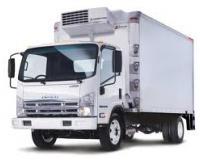
A business auto policy is a commercial policy that includes auto liability, physical damage, medical payments, and uninsured and underinsured motorist coverage. Other coverages are available by endorsement. Except for auto dealers, repair shops, and motor carrier and trucking companies, the business auto policy addresses the needs of most commercial businesses as respects auto insurance. Hawaii law requires the owners of motor vehicles designed for use on public roads to carry insurance with basic liability limits and personal injury protection (medical payments).

The Businessowner’s (BOP) policy is a package policy that provides property and liability coverage for eligible small businesses. The businessowner’s policies are written on special coverage forms that are generally very similar to the property and liability counterparts, but they usually have some unique features that make them especially advantageous for businesses that qualify.
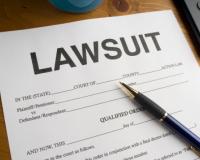
Commercial General Liability (CGL) policies are issued to business organizations to protect them against liability claims for acts of negligence for bodily injury and/or property damage arising out of premises, operations, products, and completed operations; and personal and advertising injury liability.
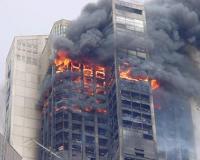
Commercial property insurance policies are used for businesses and other organizations to provide coverage for damage to their buildings and contents due to a covered cause of loss, such as fire, lightning, explosion, and vandalism. The policy may also cover loss of business income or an increase in expenses that result from the direct damage to covered property.

Crime is a generic term used to describe a wide variety of crime coverage forms that are available to protect the insured against losses of money, securities, and other property by such causes of loss as employee dishonesty, forgery, theft, burglary, robbery, kidnap, extortion and computer fraud.
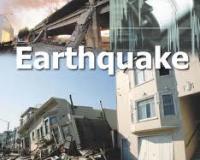
Loss from earthquake is typically excluded (along with other earth movement) from most property insurance policies, except ensuing fire. In most cases, earthquake coverage must be purchased by an endorsement to a difference-in-conditions policy or to an all risks policy. Normally, the coverage provided is subject to a per-occurrence sub-limit, an annual aggregate limit, and a separate deductible.
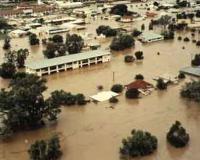
We offer coverage for damage to property caused by flood and hurricane. Most property owners are not aware that their homeowners, dwelling fire and commercial property policies do not provide coverage for damage caused by flood or hurricane. Coverage may be available by endorsement to an all risks policy, a difference-in-conditions policy or through specialty carriers. Flood coverage is normally secured through the National Flood Insurance Program (NFIP).

A garage policy is designed to address the needs of auto dealers, repair shops, service stations, storage garages and other auto-related businesses. These are risks that have an auto exposure closely related to its general liability exposure. Coverages include garage liability, garage keepers, auto physical damage. Other coverages are available by endorsement.
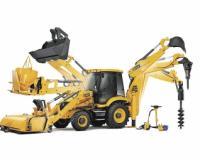
Inland Marine are property insurance coverages designed to insure exposures that cannot be conveniently or reasonably confined to a fixed location or insured at a standard rate under a standard form as compared with property insurance. It includes coverage for property in transit over land, certain moveable property, property under construction, legal liability coverage for bailees, as well as computerized equipment. Many inland marine coverage forms provide coverage without regard to the location of the covered property; these are sometimes called "floater" policies such as accounts receivable, valuable papers, contractor’s equipment, and fine arts.

Ocean marine insurance covers physical damage to ships, their cargo and freight during transportation on both foreign and domestic waters including any inland or aviation transit associated with the shipment. It also includes protection and indemnity insurance that covers the shipowner’s liability for loss of life or injury to any person, illness or injury to crew members, damage to cargoes carried, and damage to fixed or floating objects.

In addition to the more common lines of commercial insurance, we can also approach markets that provide coverage for the following specialty lines of insurance:
- Directors and Officers Liability
- Employment Practice Liability
- Fiduciary Liability
- Professional Liability
- Malpractice Liability

Temporary Disability Insurance (TDI) is a State mandated coverage provided by employers that require the payment of benefits to temporarily injured, sick or disabled employees not otherwise covered by workers compensation laws. TDI provides coverage for non-work related injuries or sickness.

The Commercial Umbrella Liability policy is designed to provide protection against catastrophic liability losses. It generally is written over various primary personal and commercial liability policies. The umbrella policy serves three purposes: it provides excess limits when the limits of underlying liability policies are exhausted by the payment of claims; it drops down and picks up where the underlying policy leaves off when the aggregate limit of the underlying policy in question is exhausted by the payment of claims; and it provides protection against some claims not covered by the underlying policies, subject to the assumption, by the named insured, of a self-insured retention.

Workers compensation policies are mandated by State law for all businesses with either full-time or part-time employees that fall under the workers compensation statute. It is the employees’ exclusive remedy for work- related injuries or diseases. The policy provides coverage for an employer’s two exposures arising out of injuries sustained by employees. Part One covers the employer’s statutory liabilities under work comp laws and Part Two covers liability arising out of employees’ work-related injuries that do not fall under the work comp statute.

